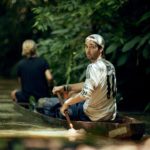
Brian Griffiths
President
Brian Griffiths is passionate about sustainable natural resource management and wildlife economies in the Peruvian Amazon. He is a human ecologist that also engages with anthropology, ecology, and conservation biology, and prioritizes community-driven work. His recent projects include the ecology of natural Amazonian mineral licks and the influence of cultural practices on hunter behavior, each conducted in collaboration with the Indigenous Maijuna people of Peru. Brian has done consulting work with the Smithsonian and United Nations, among others, on topics ranging from environmental education to wildlife economics. Brian helps direct the Amazon Center for Environmental Education and Research (ACEER, Director of Research) and OnePlanet (Director of Conservation Science). He holds a Ph.D. in Environmental Science and Public Policy (George Mason University) and bachelor’s degrees in Plant Science and Environmental Engineering (University of Delaware), and is a faculty member in the Earth Commons at Georgetown University where he teaches courses in sustainability. Before coming to Georgetown, Brian was a Postdoctoral Fellow at George Mason University, the Executive Director of ACEER, and a Fulbright grantee.
Learn more about Brian Griffiths
April 29, 2021
A Day in a Fragile World
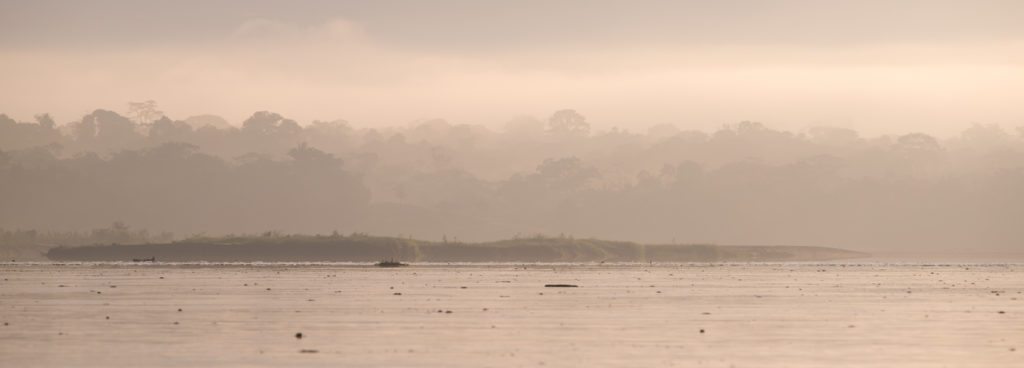
It’s dawn in the Amazon Rainforest of Peru. The night has left a cool mist from which the forest slowly emerges in layers; there is a chill in the air. Colors are muted and the world seems alien and grey. The river is dull and as flat as a sheet of hammered metal. The sun seems to still be asleep as a directionless, diffuse light brightens the landscape bit by bit.
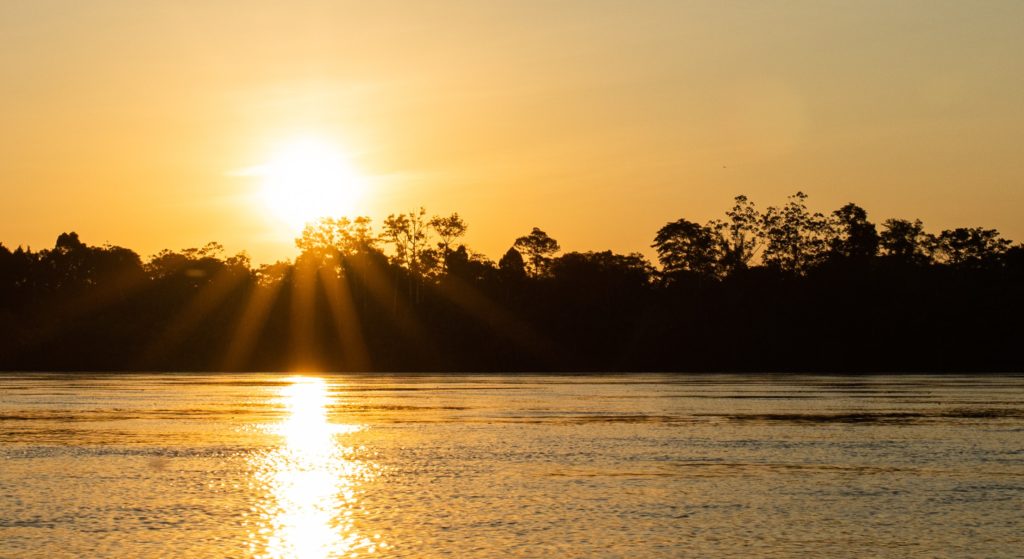
The temperature begins to rise and before long the mist is burned away by the competing sun, which has awakened and now rises quickly above the treetops and casts the river into a warm light. The sun’s arrival is greeted by a clamor that seems to rise from the soil and plants themselves, a symphony of organisms lifting their voices in song to the new day.
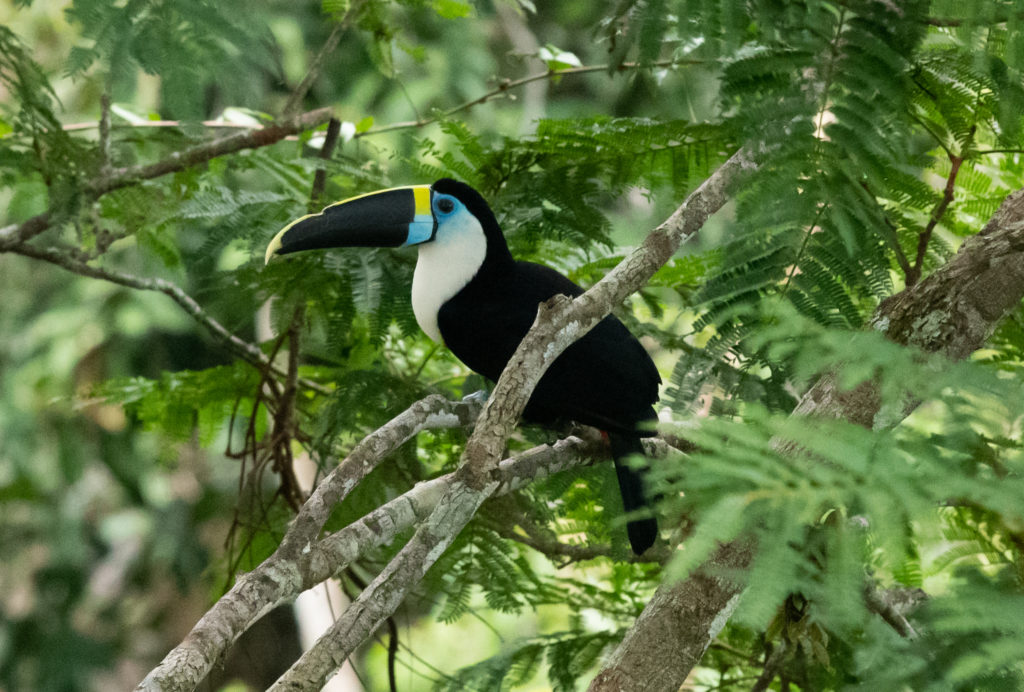
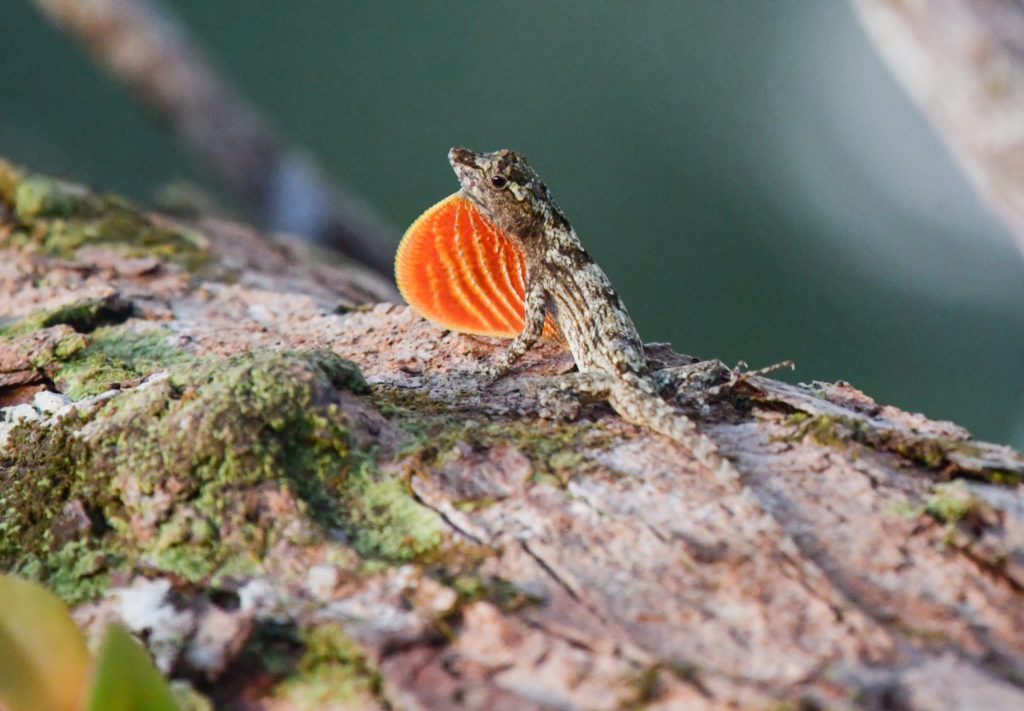
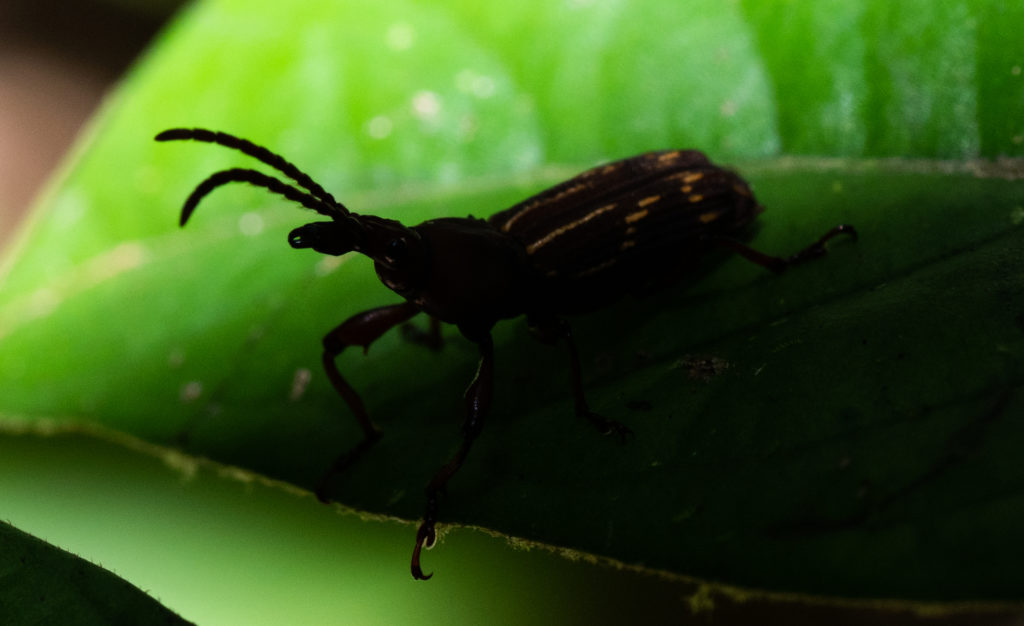
The piercing whistle of a toucan. The croaks of the frogs and lizards. The chirping and buzzing of the insects. The sheer volume and scale of calls echoing throughout the forest at dawn give an idea of the immense diversity of life hiding within the trees. The sound is overwhelming. It seems to come from all directions at once, even when there are no animals at all in sight. It’s like the Earth itself is alive and trying to speak.
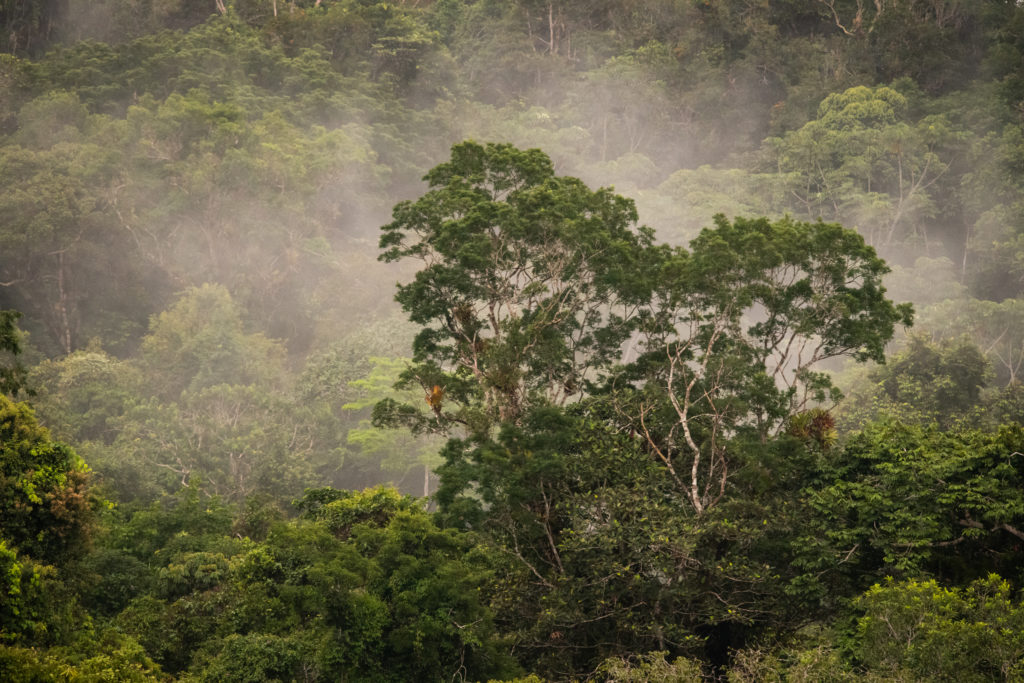
The heat intensifies as the hours pass. The air becomes thick and heavy as a new kind of fog arises. Millions of plants all around release water into the air as they open their cells to take in carbon dioxide, an exhale that seems to hover stagnant in the air. The sound has quieted. Have the animals gone back to sleep? Are they having a midday rest? The buzzing of mosquitoes and bees has not ceased, but the stranger calls seem to have gone.
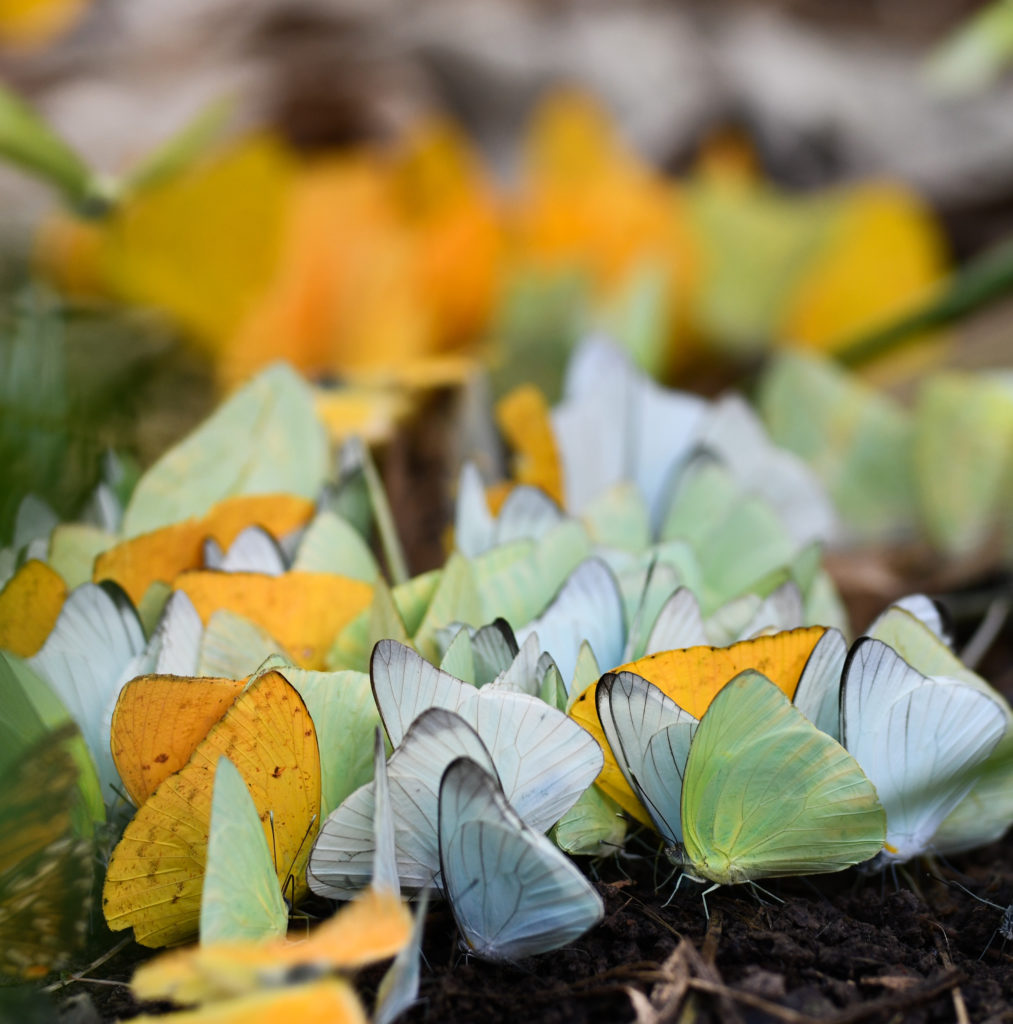
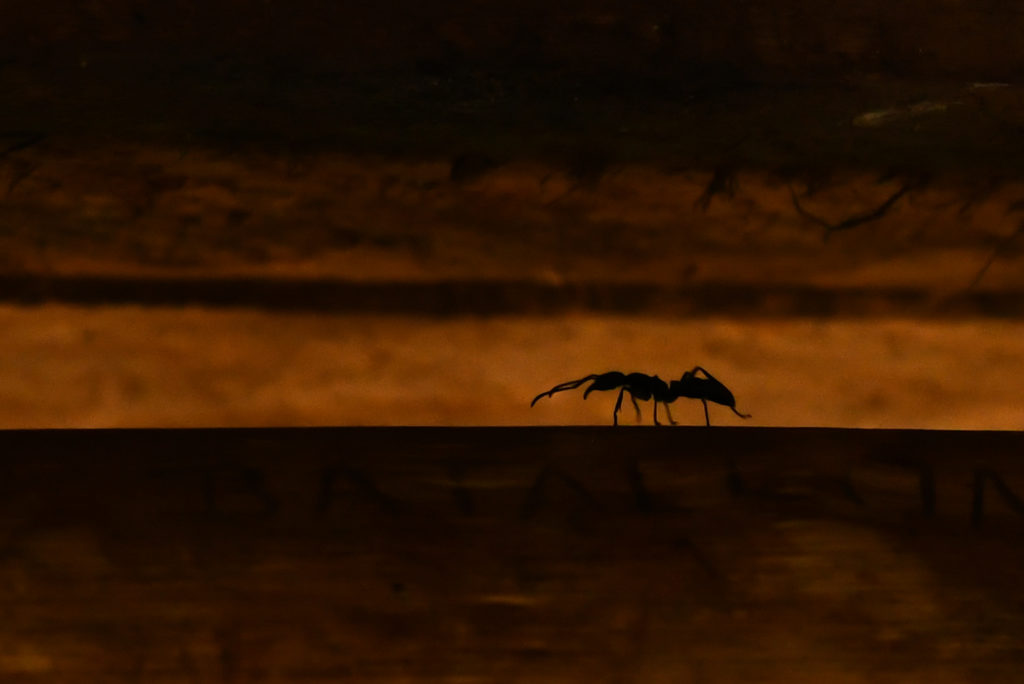
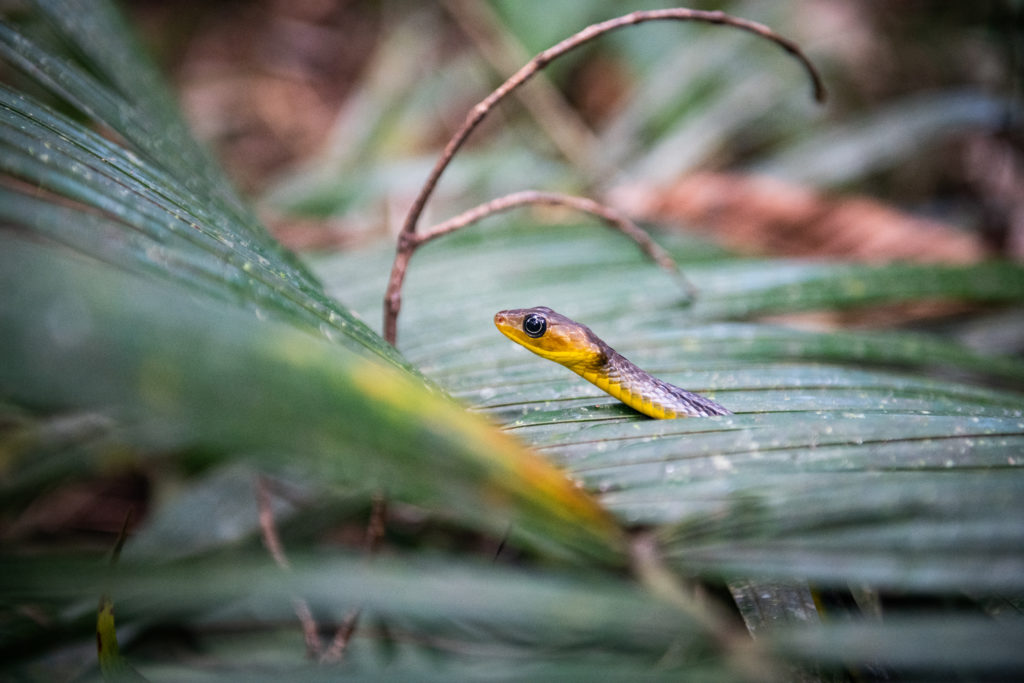
It looks like the animals are not resting after all. Every now and then, there is a small burst of sound as a fruit drops from a tree accompanied by a small shower of water droplets. The scent of the orchids is thick, combining with the musty smell of wet soil and rotting wood. A closer visual inspection of the forest floor reveals the presence of new, silent life. Butterflies gather to suck minerals from the ground while ants in the thousands – no, tens of thousands – scurry along branches, each conducting their own business. A curious vine snake peeks its head up between the leaf litter for a look around before disappearing once more on the hunt for a midday meal.
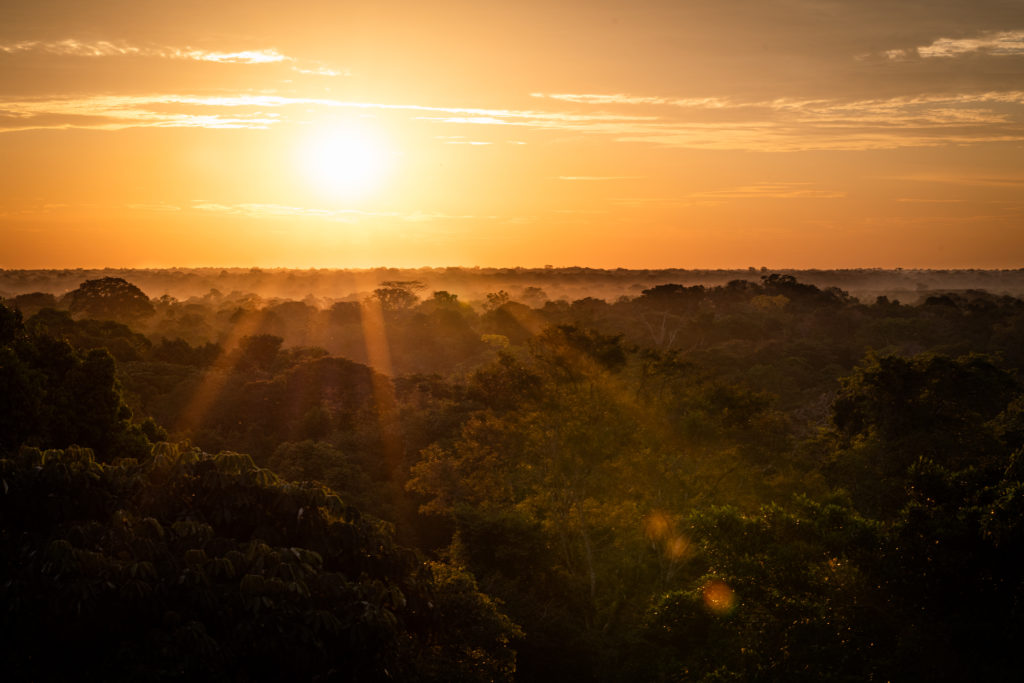
As the sun passes its zenith and begins to drop low in the sky once more, the songs of the forest awaken once more. Troops of monkeys are calling back and forth, heatedly debating the lines of territories. Some birds chirp and sing, trying to attract a mate, while others scream in warning at the presence of predators. In the distance, branches and sticks are breaking as a herd of wild peccaries moves through the forest in search of fallen fruits to eat. A breeze is starting to stir, sending a wave through the treetops and whispering the promise of a storm in the evening air. That breeze brings a feeling of life, a sense of balance and connectedness.
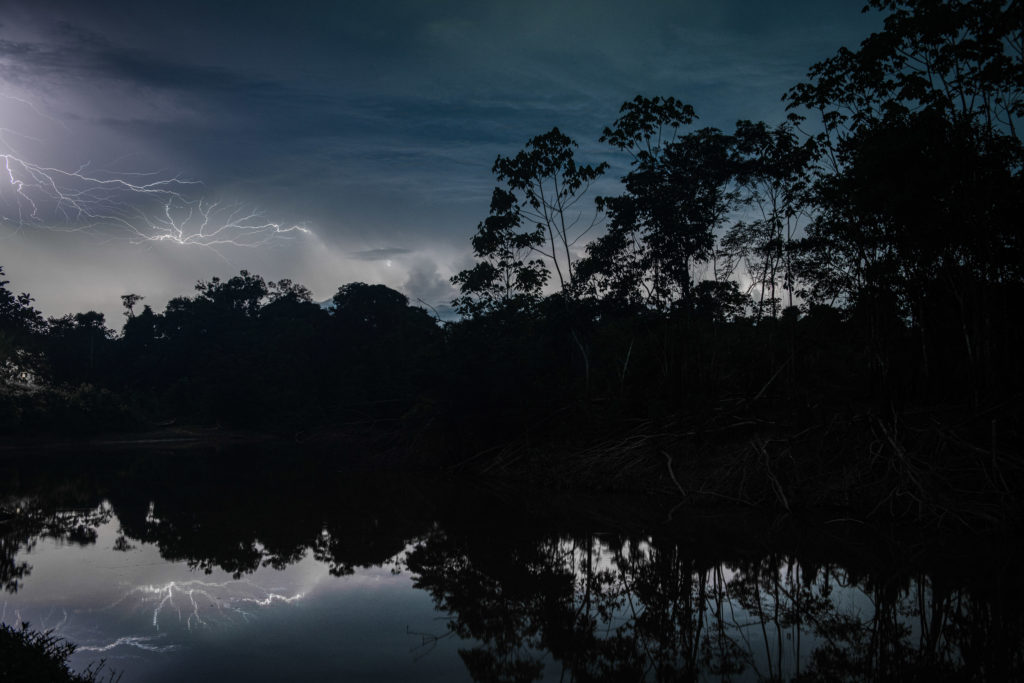
Night falls, and the creatures of the dark awaken. Frogs begin a low, rhythmic call that seems to count the seconds as they pass. The temperature is dropping, and wind still stirs the leaves into motion. A dull roar slowly becomes audible in the distance, as if a freight train were moving through the forest and coming closer. When the noise seems to be all around, thunder cracks so loud it seems the Earth itself has split open. Lightning bolts arc in all directions across the sky. For a few split seconds, the beauty of the lightning is reflected in the still river. Then the sky opens up and visibility drops to zero as the rain finally arrives.
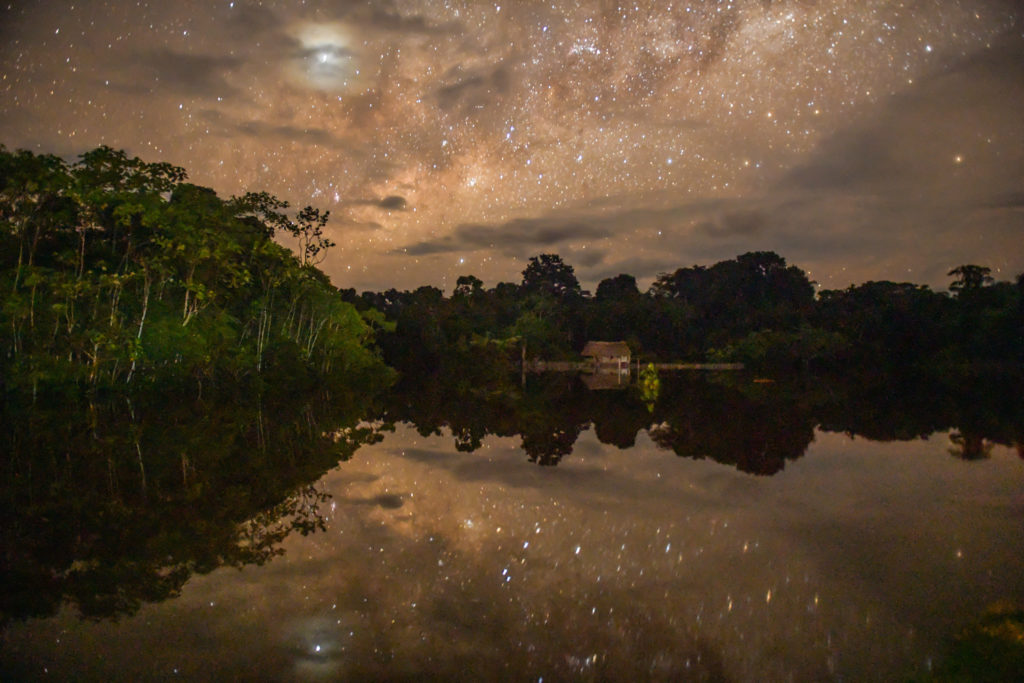
The storm passes and the world seems refreshed. As the clouds dissipate, the cool air left in the storm’s wake reveals yet another wonder. Millions – no, billions of stars light up the sky in all their wondrous colors. The Milky Way creates an arch over the entire landscape, making it seem like this place is the center of it all. With the reflection in the river, it feels like you’re floating through space itself. Can you feel the Earth breathing, and speaking? Sadly, this spectacle won’t last for long. The fresh air is creating mist that seems to rise from the river and slowly take hold of the forest again in preparation for the dawn’s imminent arrival.
